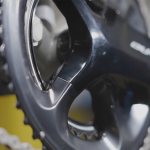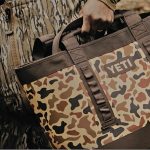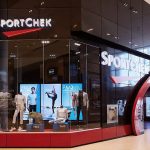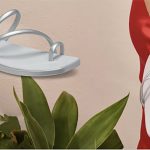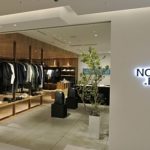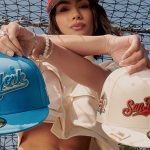For the first time in 11 years, Puma will become an independent company as its luxury-conglomerate parent, Kering SA, moves to spin off Puma to its own shareholders.
For Kering , the disposal enables the company to focus solely on growing its luxury business through brands including Gucci, Balenciaga and Stella McCartney. For Puma, the spinoff as an independent company will lead to a greater free float of Puma stock, “providing investors an enhanced possibility to invest in Puma,” as well as more some more freedom for management in running the business.
Kering first acquired its stake in Puma in 2007 and currently owns 86 percent of its shares.
The spinoff also avoids a long-speculated sale of Puma and enables Puma’s management to continues its turnaround efforts that began paying off in 2005.
“We are very pleased that Kering has proposed this way to reduce its stake in Puma,” said Bjørn Gulden, CEO of Puma, on a conference call with the media. “It would allow us to continue with our current business strategy that has started to show some good results. We would be able to carry on to invest in becoming the fastest sports brand in the world to create value for our retailers, to improve performance for outlets and, of course, excite consumers.”
Under the plan, Paris-based Kering plans to spinoff 70 percent of Puma’s outstanding shares, which would reduce Kering’s stake to 16 percent from 86 percent. Artémis, the holding company of France’s billionaire Pinault family that holds 41 percent of Kering shares, would then become a “long-term strategic shareholder” in Puma, with an ownership stake of about 29 percent.
With the stake of Artémis and Kering equaling 45 percent, approximately 55 percent of Puma’s publicly traded shares would then be publicly traded, up from 14 percent previously.
The changeover is expected to close near the end of April. A Kering shareholder meeting to approve the spinoff is set for April 26.
“With a 55 percent free float, larger trading volumes allow us to become much more attractive for investors as our shares would have a substantially higher free float,” Gulden told journalists. “Kering and Artimus will however remain strong partners and shareholders which proves that they believe in our strategy and in Puma’s future success.”
Kering acquired its controlling stake in Puma in 2007 for €5.3 billion (about $7 billion) as part of a strategy to complement its luxury portfolio with sports brands with much investor attention around the health & wellness space. In 2011, Kering paid $608 million to acquire the skate- and snowboarding clothier Volcom and formally established a Sport & Lifestyle Division to acquire other sports brands.
But other sports brands weren’t acquired and in recent years, analysts have pushed for Kering to sell Puma because the brand had been underperforming and didn’t fit alongside Kering’s luxury lineup. Last year, Electric, a snow-goggles manufacturer acquired in the Volcom purchase, was sold, leading to more speculation that Puma was also on the selling block.
According to Bloomberg, the decision to spinoff disappointed some Puma investors who were hoping Kering would be able to find a buyer willing to pay a premium for the shares.
“This exit scenario is not the best one for Puma’s minority shareholders,” Cedric Lecasble, an analyst at Raymond James in Paris, wrote in a note. “A straightforward disposal of Puma at a premium might have been partly priced in by the market.” Kering shareholders may also decide to sell any Puma shares they receive in the spinoff, pressuring Puma’s stock in the short term, he added.
According to the New York Times, Puma’s size prevented Kering from finding an appropriate new owner for Puma, and a sale on the open market could have led to discounts on the stock.
With its improving performance, Puma’s shares have soared by 45 percent over the last 12 months, bringing its market capitalization to €5.3 billion, in line with the value at which Kering originally bought the brand.
Asked if Kering chose to spin off Puma because it wasn’t able to find a buyer for the brand, Gulden acknowledged on the media call that since he took over as CEO four years ago, “there has been many companies that have been interested” in acquiring Puma. But he declined to disclose further details and told journalists to reach out to Kering on why they chose the spinoff option. He also again stressed management is “very happy” with the planned spinoff because its successful turnaround progress can continue.
He added, “For Puma, having an anchor investor in the combination of Kering and Artémis and then having a bigger free float is the optimal.”
Asked what Puma may be losing by not being directly under Kering’s infrastructure, Gulden said some back-end functions such as finance and insurance were overseen by Kering and many synergies were captured earlier under Kering’s ownership. But at this point, he feels Puma gains “very few operational advantages” being part of Kering. Puma is “already very independent and I think that’s also why this transaction makes so much sense,” he stated.
Gulden was careful to say that at least over the last four years under his watch, Kering has “given us a lot of freedom” and has been “a very good owner and very supportive in helping us in improving the business.” At the same time, the big push by Puma is to become quicker to market across many aspects of the business, and “it is obvious that if you are an independent company with a big free float and not part of a group, the decision making is even quicker because there’s no group to talk to.”
He also noted that owning a combined 45 percent of Puma, Kering and Artémis will still be supportive of Puma.
Asked if the spinoff would impact its successful recruiting of fashion ambassadors in recent years, for example, he said Puma’s internal team has been “very successful building relationships” but he also suspects François-Henri Pinault, chairman and CEO of Kering, and others at Kering will “continue to helpful in the future” given its still major stake in Puma.
Puma’s partnership with the singer Rihanna has been particularly successful in not only generating sales but buzz for the brand. Other non-sports ambassadors include Cara Delevingne, Kylie Jenner, The Weekend, Big Sean, Selena Gomez and Yo Gotti.
Overall, Gulden also doesn’t feel that no longer being part of a luxury conglomerate will impact its ability to attract ambassadors. He further half-joked that one of the perks of being part of Kering was being to provide a Gucci suit to sprinter Usain Bolt, the brand’s biggest name on the sports side, for a major social event. He added, “We will have to talk to the Gucci people if we can continue to get the discount for those things and I’m sure they will be helpful.”
Gulden also expects “no change” for Puma’s employees in daily operations and stressed the brand’s positioning will continue to be “sports first” with further investments planned in sports endorsements. At the same time, he noted the fashion and sports “has merged much, much, much stronger than some years ago and the momentum that you’re getting is a combination of having products that attract both the people on the street side and the sports side.”
On a separate conference call with media, Kering officials indicated that they have long wanted to focus purely on its high-margin luxury business.
“We found ourselves in a sort of imbalance, linked to the outperformance of the luxury sector,” said Jean-Marc Duplaix, Kering’s CFO. Kering will sell its remaining sports holding, Volcom, “when the time is right” and a solution fits both Kering and the brand, according to Bloomberg.
Puma will also continue to own Cobra Golf, which was acquired in 2010 and combined with its Puma Golf business.
Photo courtesy Puma






